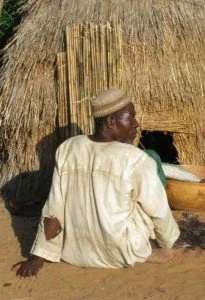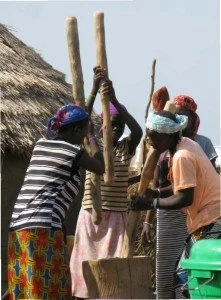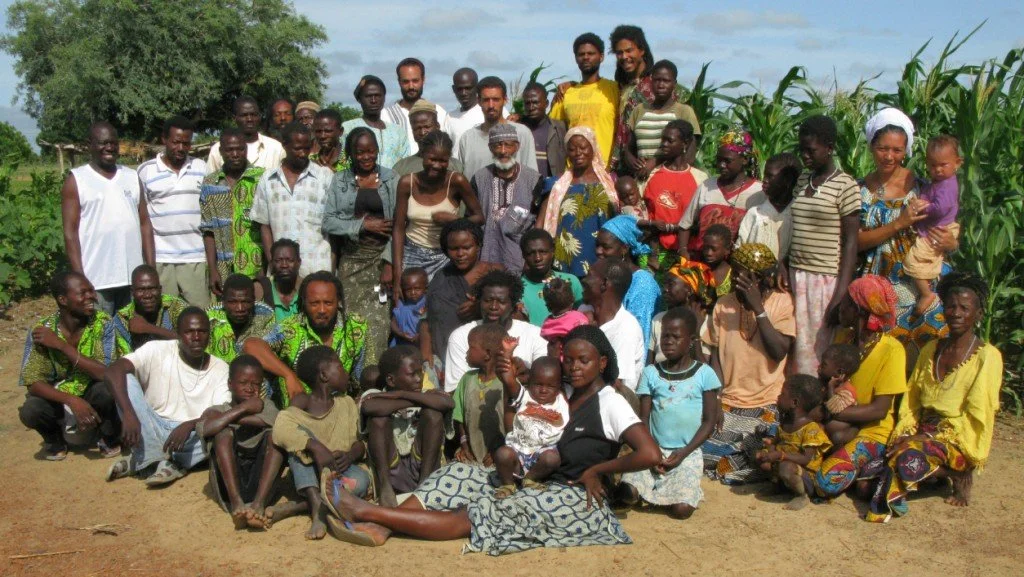Preserving Traditional Culture
Traditional cultures have an age old history of producing high quality individuals, strong families and tight-knit communities as shown in these photos. Unfortunately, increasing numbers of traditional people are being drawn to the glamour of modern culture at the cost of the values that define them
Through extensive investigation
and analysis, history has revealed that most native people of any land, regardless of location, were able to survive for centuries because they had a system set in place that worked. Protecting which is of value, such as culture and tradition, entails a level of responsibility and commitment in order to maintain harmony. Whether it was in relation to the spiritual (non-material) or practical (material) world, they were able to adapt to their environment, regardless of its internal or external conditions. Despite their struggles, they were successful at preserving their values while living in harmony with the existence. If we assess these once stable and powerful cultures today, we will find that most no longer exist.
The conditioning that we have may immediately lead us to "believe" that traditional lifestyle is backwards, for savages, and that it is more comfortable to live life in the way the modern system has constructed it. These are some of the stereotypes that those who are trying to preserve traditional culture are faced with. We have to understand that in order for any culture that has ever existed to go from great splendor to squalor and ruins, it must have been influenced by either internal or external forces.In M'TAM, (the oldest initiatic education known to mankind), we are taught that a structure is only as strong as the people who uphold it. A society of highly developed individuals is necessary for achieving the goal of having a stable structure. For tens of thousands of years, the Kemetic structure (commonly known as Egyptian by the modern world) has given the world a model to follow for all aspects of life. The cultures that followed the Kemetic spiritual model were able to maintain themselves.
Highly developed people with the same collective goals are what make a harmonious society. The Kemetic structure is very demanding and requires those that follow it to be morally upright. From the Pharaoh to the commoner, everyone was expected to exemplify the Kemetic structure, because they all had the same objectives, which were to constantly improve their human qualities with the goal of building a world that resembled the divine world. This wasn't just some notion, it was a reality.
Since the 19th of Tehuti (the day humanity was given the 77 Commandments, also known as the most spiritual day of humanity), the world followed the 77 commandments, also known as the Divine Code of Human Behavior. Humanity followed the Divine Code of Human Behavior because they wanted to see a perfect world, one that resembled the Divine World. When our ancestors lived this refined life, it allowed for them to experience the ultimate level of harmony. This way of life didn't come easily, it came with many social sacrifices. Unlike today, the pursuit of entertainment, fun and pleasure weren't the goals of the society. Humanity was aware of the goal that each individual shared, the goal of coming close to the divine world. People lived their lives knowing at death they would be held accountable for their actions, so they lived their lives according to the 77 commandments.
Humans are very adaptive and capable of surviving the most extreme living conditions. Our ancestors have shown through trial and error, when left alone, they were able to endure any obstacle they encountered. They looked to their natural environment for assistance in dealing with these obstacles and challenges. Over time, they refined themselves and their methods of navigating through life.
If we examine the condition of the world today, we can see that what we call "indigenous" people are close to extinction. Why is this the case? There are many reasons as to why this may become our reality. Globally, people are different because of cultural and social identity. This is what makes each tribe, group, and ethnicity different or unique. Often we judge others' values and cultures when we only understand and relate to our own, because they are foreign to us. We don't know enough to make these judgements since we haven't lived their way of life. Imposing one set of cultural values on other cultures is what has given birth to this colonial system we live in today. This is the approach that the "new" leaders of the world have taken.
Many people are ashamed to be associated with their native roots and are often offended if you offer them another perspective that differs from the colonial lifestyle. This society and its propaganda have wrongly portrayed and manipulated those that have a history of culture to judge and hate themselves as well as the culture they come from. The modern system was created based on usurping and destroying other peoples' cultures because it has nothing but lies, death and destruction to present to the world.
The "Modern" way of life has been presented to look very appealing to the world. Now many people leave their native lands with the hopes of achieving the material wealth that the system says you must have in order to have some level of status or to be accepted. Many abandon their culture for the pursuit of money and broken promises. When we think of a "better life", it is usually associated with the modern way of life. Many native people are now choosing to come to America or other colonized countries to work for a living with the hopes of having a "better life." They raise their families in societies that are foreign to their values, so over time many of their traditional values are lost. The children are raised and assimilated into the Modern lifestyle. Materialism, drugs, gangs, violence, truancy, rebellion etc are some of the paths that are taken as a result of the influences of this system.
Students of The Earth Center during the 2009 Pilgrimage in Master Naba's village.
Despite the various outside influences we observe that are negatively influencing traditional culture, there are still many tribes and ethnic groups that maintain their traditional values. This isn't done easily; many are exposed to the modern lifestyle but understand the need to stick to their traditional values even while living in colonized countries. They see how other groups have been affected by religion, capitalism, colonialism and they understand the responsibility they have in preserving their culture. Culture gives you your identity, without it you have no identity. The problem we have today is that many descendants of these cultures continue to willingly embrace values that are not their own and take pride in doing so. Every culture that wasn't able to preserve itself eventually perished. If we are to maintain our traditional values, we must live them and not play the role of a foreigner. We must understand that we can't abandon our values for values that aren't ours. Many of our ancestors have given their lives in order to preserve their traditions. It is up to us their descendants to do the same. It begins with wiping away the shame of rejecting our values to now embracing our cultural traditions with dignity.



